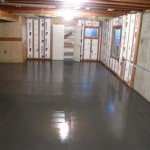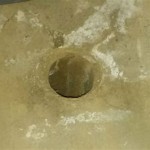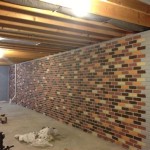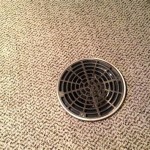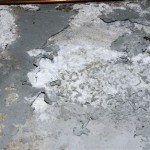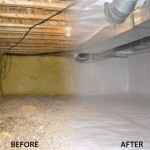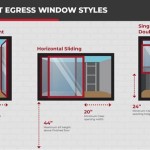How Much To Drywall a 1200 Sq Ft Basement? A Comprehensive Cost Breakdown
Drywalling a basement transforms a damp, unfinished space into a comfortable and valuable extension of a home. Before embarking on this project, understanding the associated costs is crucial for budgeting purposes. Estimating the cost to drywall a 1200 sq ft basement requires considering various factors, including material costs, labor expenses, and additional tasks like framing, insulation, and finishing. This article provides a detailed breakdown of these factors to help homeowners better understand the potential expenses.
The overall cost to drywall a 1200 sq ft basement can vary significantly depending on the level of finish, the complexity of the basement layout, and local labor rates. Providing a precise figure is challenging without a specific project assessment. However, by examining the component costs and providing ranges, a realistic estimate can be developed. This estimate should incorporate potential unforeseen issues that can drive up the overall expense.
Consider that 1200 sq ft typically refers to the floor area of the basement. To calculate the surface area requiring drywall, the wall height must be considered. Assuming an 8-foot ceiling height, the perimeter walls would cover a substantial area, significantly impacting the amount of drywall needed. Interior walls further increase the surface area requiring drywall, requiring accurate measurement and planning to optimize material usage and minimize waste.
Material Costs for Drywall Installation in a 1200 Sq Ft Basement
The primary material cost is drywall itself. Drywall sheets are typically sold in 4x8 or 4x12 foot panels. Sheetrock costs can vary based on thickness and type. Standard ½-inch drywall is the most common choice for walls and ceilings in residential applications, while moisture-resistant drywall, often referred to as "green board" or "blue board," is recommended for bathrooms or areas prone to humidity. Fire-resistant drywall (Type X) may be required by local building codes, especially in areas near furnaces or other heat sources.
Assuming a rectangular basement that is 30 feet wide and 40 feet long (1200 sq ft), the perimeter would be 140 feet. With an 8 foot ceiling, the exterior wall area would be 140 * 8 = 1120 sq ft. This calculation does not include the area covered by windows and doors, which would reduce the amount of drywall needed proportionally. It also does not account for interior walls. A reasonable estimate incorporates the cost of 1200 sq ft (or more if interior walls are added) of drywall for the walls and 1200 sq ft for the ceiling. Therefore, 2400 sqft of drywall will be necessary.
Homeowners should calculate the amount of drywall necessary by adding the square footage of each wall and ceiling space. After the initial value of the wall and ceiling square footage is calculated, it is a good idea to add around 10% to account for cut pieces and measurement errors. A single 4x8 sheet is 32 square feet. Using a price point of $15 per sheet, then 75 (2400/32) sheets would cost about $1125. It can be useful during the shopping process to comparison shop for better rates at suppliers.
Beyond the drywall sheets, additional materials are essential: joint compound (mud), paper or mesh tape for seams, screws, and possibly drywall primer. Joint compound comes in various types, including all-purpose, lightweight, and quick-setting. The choice depends on the installer's experience and preference. Paper tape is generally preferred for its strength and resistance to cracking, while mesh tape is easier to use, especially for beginners. Screws are used to securely fasten the drywall to the framing. Priming the drywall before painting ensures better paint adhesion and a more uniform finish.
Material costs depend on the quality of the products chosen and the extent of the project. A basic material package for a 1200 sq ft basement needing 2400 sqft of drywall surface will likely range from $1,500 to $2,500, factoring in drywall, fasteners, joint compound, tape, and primer. Prices will vary depending on location and purchase volume.
Labor Costs for Drywall Installation in a 1200 Sq Ft Basement
Labor costs constitute a significant portion of the overall expense, especially if a professional contractor is hired. Labor rates vary depending on geographic location, the contractor's experience and reputation, and the complexity of the project.
Drywall installation typically involves several stages: hanging the drywall sheets, taping the seams, applying multiple coats of joint compound, sanding the seams smooth, and potentially priming the surface. Each stage requires skill and time, and the quality of the workmanship directly impacts the final appearance of the finished walls and ceilings.
Contractors may charge by the square foot or by the hour. Square foot rates typically range from $1.50 to $4.00 per square foot, depending on the level of finish. This price generally includes hanging, taping, and finishing the drywall. Hourly rates can range from $50 to $100 or more, depending on the contractor's credentials and the local market conditions. It is important to consider the cost of labor and materials together when estimating costs.
For a 1200 sq ft basement with 2400 sq ft of drywall surface, labor costs could range from $3,600 to $9,600 if the contractor charges by the square foot. This estimate covers hanging, taping, and finishing. The lower end of this range represents a more basic finish, while the higher end reflects a more detailed and meticulous job.
When obtaining quotes from contractors, it is crucial to get a detailed breakdown of the services included and to verify that the contractor is licensed and insured. Checking references and reviewing online testimonials can also provide valuable insights into the contractor's workmanship and professionalism. Obtaining multiple bids will allow for price comparison. It is also useful to consider how much the project will increase the value of your home.
Additional Costs Associated with Drywalling a Basement
Besides drywall and labor, several additional costs should be factored into the budget. These include framing, insulation, electrical work, plumbing, and potential remediation for moisture issues. These ancillary tasks can significantly impact the overall project cost and should be carefully considered during the planning phase.
Framing is the structural skeleton to which the drywall is attached. If the basement is unfinished and lacks existing framing, this will add to the cost. Framing typically involves building walls and ceilings using wood or metal studs. The cost of framing depends on the complexity of the layout and the price of lumber or metal. Framing a 1200 sq ft basement could range from $2,000 to $5,000, depending on the extent of the framing required.
Insulation is vital for energy efficiency and comfort. Insulating the basement walls and ceiling helps regulate temperature and reduce energy consumption. Common insulation options include fiberglass batts, spray foam, and rigid foam boards. The cost of insulation varies depending on the type of insulation chosen and the R-value (thermal resistance) required. Insulation costs for a 1200 sq ft basement could range from $1,000 to $3,000, depending on the insulation type and coverage.
Electrical work is often necessary to add outlets, lighting fixtures, and other electrical components to the finished basement. This work should be performed by a licensed electrician to ensure safety and compliance with local building codes. Electrical work costs can vary significantly depending on the scope of the work and the number of fixtures and outlets installed. Expect to pay anywhere from $1,000 to $5,000 for electrical work in a 1200 sq ft basement.
Plumbing may be required if a bathroom or wet bar is being added to the basement. This could involve running water lines, installing drains, and connecting fixtures. Plumbing work should also be performed by a licensed plumber to ensure proper installation and prevent leaks. Plumbing costs can range from $1,000 to $5,000 or more, depending on the complexity of the plumbing work.
Moisture issues are common in basements, and addressing them is crucial before drywalling. Water leaks, condensation, or high humidity levels can damage the drywall and lead to mold growth. Remediation efforts may involve sealing cracks in the foundation, installing a vapor barrier, or adding a dehumidifier. The cost of moisture remediation can vary widely depending on the severity of the problem, ranging from a few hundred dollars for minor repairs to several thousand dollars for more extensive work.
Permits are often required for basement finishing projects. The costs of permits vary by municipality and can range from a few hundred dollars to a few thousand dollars. It is the homeowner's responsibility to verify whether permits are required and to obtain them before starting the project.
Removal costs of any existing material must also be considered in the overall budget. The removal and disposal of debris must also be accounted for in the budget.
The total cost to drywall a 1200 sq ft basement can range from $8,000 to $25,000 or more, depending on the factors outlined above. It is crucial to obtain detailed quotes from contractors and to factor in all potential costs to create a realistic budget. Accurately accounting for these costs will assist in a sound financial decision regarding the remodel of the basement.

How Much Does It Cost To Finish A Basement 2024 Data Bob Vila

How Much Does It Cost To Drywall A Basement Real Estimate Services

2024 Drywall Installation Cost Hang Per Sqft

2024 Drywall Calculator Determine Sheetrock And Mud Needs Homeadvisor

A Look At Basement Renovation Costs Alpine Credits Ltd
2024 Cost To Finish Basement Average Per Square Foot

How Much Drywall Do I Need For A 1200 Square Foot House

Cost To Install Drywall On Walls And Ceilings Bigger Than The Three Of Us

Cost To Install Drywall On Walls And Ceilings Bigger Than The Three Of Us

Drywall Tape And Finish Basement Project Carpentry Finishing
Related Posts
